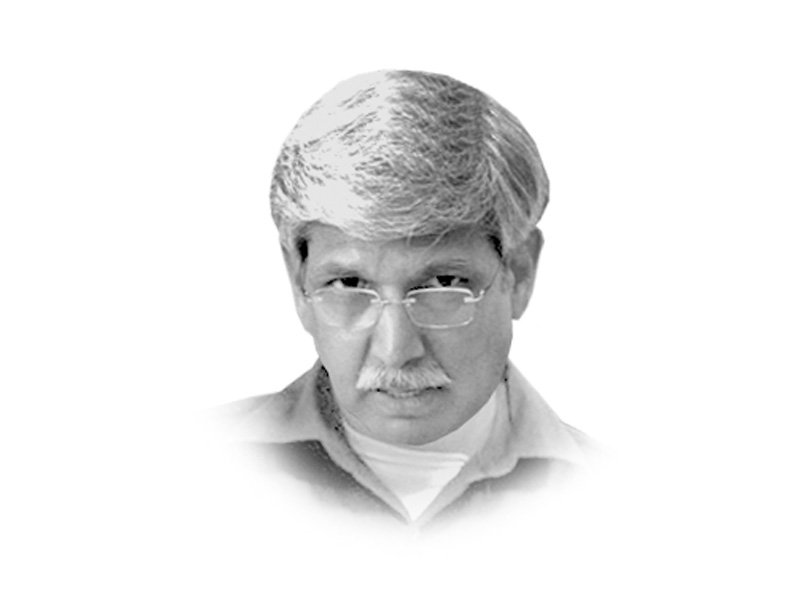
His reason for disagreeing with such empowerment of the military courts doesn’t emerge from any support for terror organisations; far from it, but from the assumed dalliance with the basic structure of the Constitution by creating a parallel system of justice outside the domain of the judicial system as exists under the charter of the Constitution. Two things must be stated at the outset: all state structures, and the judiciary, are creatures of the Constitution; they take root from, and are, because of the Constitution. If and ever the Constitution creates another being or entity, it too is a creature of the Constitution. The military courts thus are also creatures of the Constitution in how they already exist, and in how they have now been further empowered by an amendment to the same Constitution.
The superior courts per their role are appellate courts and responsible for interpreting the Constitution whenever approached. They can also note suo motu any matter of public interest requiring legal or moral qualification. However, being creatures of the Constitution, they also must respect their creating entity. The tussle between the creating entity, parliament, which creates laws and amends the Constitution when needed, and the judiciary that arrogates to itself the role of ‘defending’ the Constitution, is long. That became apparent when the 18th Amendment was to be passed. The conflicts and contradictions within the judiciary are fabled, and have been rarely addressed either by the courts or by the legislature; save of course the 19th Amendment when the Supreme Court sought to restore the Supreme Judicial Council’s dominating position in decisions related to the appointment of judges to the higher courts. Only such accommodation of interests enabled the 18th Amendment to sustain the scrutiny of the higher courts.
The military courts have not been created by the 21st Amendment as is popularly but incorrectly surmised. These are part of a system in place under the laws that emerge from constitutional provisions. Military men in uniform and those who are subject to the Acts of the three services are tried by these courts based on the type of omission or commission either summarily (ordinary cases of indiscipline), or through the institution of formal courts (serious crimes). The process facilitates full access to defence — sometimes from the reputed legal resource base outside the military, as well as the right to appeal if convicted. What the 21st Amendment has done is to authorise these courts to try civilians who use terror as a means to inflict damage to any person, installation or entity of the state. An earlier provision of 2004 already permits civilians engaged in crimes against the military to be tried through court martial.
Article 245 that enables the military to act in aid of civil power places the military outside the purview of any challenge to its actions and authority by the higher courts under the same law. The courts are also not empowered to review any punishment awarded by a field general court martial instituted under very special circumstances or while the nation is in a state of war. This has been a long-standing rub, especially the provision instituted under Pervez Musharraf that empowers military courts to try civilians engaged in crimes against the military. Every time a civilian is tried under such authorisation and convicted, the higher courts have always entertained petitions challenging such authority of the military courts. The higher courts are also amenable to petitions by military men when convicted by court martials under the garb of infringement of fundamental rights and have upturned some convictions.
Pakistan’s specific civil-military tenuousness also means that it extends the dissonance to matters of justice. What should only be procedural matters rake sentiments from the past. The judiciary, mostly an abettor to military’s deviations in forging past martial laws, must atone for its omissions. The idealism of young lawyers reflects their unease with such a past and may at times become oblivious to the obvious shortcomings that bedevil our judicial system. What must have been done to claim that mantle of credibility as a system of service remains sadly missing in the inadequacies that have been one major factor in the degeneration of Pakistani society, and less said of the corruption that virtually defiles the entire system.
When Raza Rabbani cries before the Senate when voting for military courts, he in fact cries for the dysfunctionality of a judicial system that has failed to stand up to the needs and expectations of the people in playing its due role in establishing the rule of law and disposing justice in an early and transparent manner. Rabbani’s tears were an indictment of the justice system in the way it has degenerated and deteriorated; and in the way that the courts will refer back the 18th Amendment to carve out the 19th in their favour but will not address the inadequacies of laws or processes that can enable them to function in the spirit of justice as conceived by the founding fathers. In such crying, Rabbani is indeed not alone; all of us should feel the same shame. Military courts are an attempt to make up where others have failed, not to replace what should in the first place be functioning more efficiently.
To begin with, we need lawyers and barristers of the class mentioned above to take on the role of public prosecutors rather than gloss under the more celebrated band of defence lawyers. From among the young and bright, are there any takers?
Published in The Express Tribune, January 10th, 2015.
Like Opinion & Editorial on Facebook, follow @ETOpEd on Twitter to receive all updates on all our daily pieces.
COMMENTS (11)
Comments are moderated and generally will be posted if they are on-topic and not abusive.
For more information, please see our Comments FAQ
1736764135-0/Untitled-design-(47)1736764135-0-405x300.webp)


1736760446-0/fizza-(13)1736760446-0-165x106.webp)

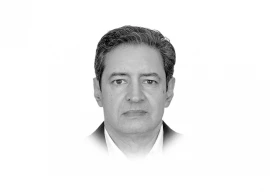





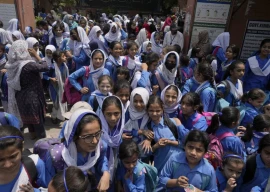
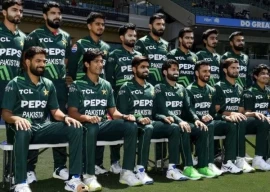

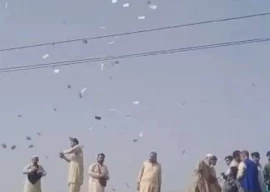
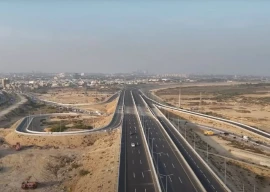
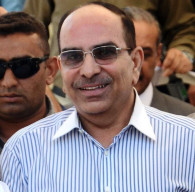


Yes military courts indicate the inability of our civil justice system which could not handle the situation but if we talk about the overall justice system, the answer is not different. When a poor has to get justice, the system is too lengthy and too expensive to afford. We need overall reforms in our justice system to avoid frustration. So that we can go ahead as a prosperous nation.
There is nothing sacred about the constitution and just because something is sanctioned by the constitution or not doesn't make it ethical or unethical- military courts are wrong because they suffer from issues of transparency, the superficiality of the process, a deep disregard for justice, limited understanding of the law and a culture of obedience and compliance. If military courts were that good why did these courts act to suppress dissent and protest under martial law regimes- Military courts are no solution- the Government should have reformed the dysfunctional legal system- provided for witness and judge protection - reformed evidence collection procedures and instituted a system of quick case disposals- will these things become okay in two years- certainly not
It is astonishing that how the constitution is being discussed when terrorists are the subject even after declaring that we are at war, politicians pay deaf ear to constitution when matters of public interest are stuck at political discourse. i could not see any tear in the eyes of any naive politician at loot and plunder which rendered Pakistan toll high rank in failed states when even half of Pakistan had eroded, instead these were the same lot defending the responsibles, they have no tears when more 132 children butchered at APS. actually they have tears after having remembered their own predicaments
The military is trying to put out a raging fire by arm-twisting politicians into legitimizing military justice. Who started and then protected this fire for decades - watching it grow as it consumed 50,000 souls? The military. So the arsonist is now the fire fighter.
So in a nut shell you are saying ...Pakistan does not have the brains and intelligence to solve such type of cases ... Only if you can protect your judges from being killed and intimidated by the goons ... the problem will solved more amicably.. Don't you think this is a back door entry of the army to control the so called Democracy in Pakistan ????
So the Generals who treat the law of the land as a piece of toilet paper and defanged the courts in the first place are going to dish out justice? The same military that refused to produce people before courts, send Army officers to give testimony or share evidence with the police, are going to run a "just" judicial system? The same institution that nurtured and supported these militant thugs who go into court and read out the names of judges children and grandchildren, and then you ask why courts are so weak? Pot calling kettle black.
Taliban or for that matter sectarian organizations are also the creature of constitution. .The day Zia made commandments in constitution came into being sectarian organizations you need not to name it. No secular constitution no peace till then keep on wandering in darkness.Military courts will never solve the problem.
Why accuse ARK of defending his turf considering AVM only defended his?
The points are mute since the amendment is passed.
The dissent is based on the paradigm that once the door is opened, it is impossible to close in the case of constitutional amendments.
If a military can try a civilian under military court and the civil jurisdiction is barred from trying military offenses, then does it not establish the supremacy of military in civilian affairs?
The point of dissent was to correct the judicial pot holes rather than further empowering an institution which has a shaky record in PAK.
"Military men in uniform .....are tried by these courts based on the type of omission or commission either summarily (ordinary cases of indiscipline), or through the institution of formal courts (serious crimes)." - One would like to believe such a statement but in PAK history it has never happened when the crimes are committed against the civilians.
In any case this amendment is going to be misused and PAK will never get it of it. The same outcome of military court could have been established through legislation.
All amendments to the constitution should reflect the spirit of the nation and should stand the test of time. The discussed issue of need for military court logic is a legistalive issue pertaining to correction of judicial system of PAK and not constitutional issue.
But who cares on that. Amend, add doctrine of necessity, get the legitimacy of military rule through constitutional amendments are all modus operandi of PAK to claim constitutionality of bogus legitimacy of illegal, unconstitutional and irrational decisions and actions.